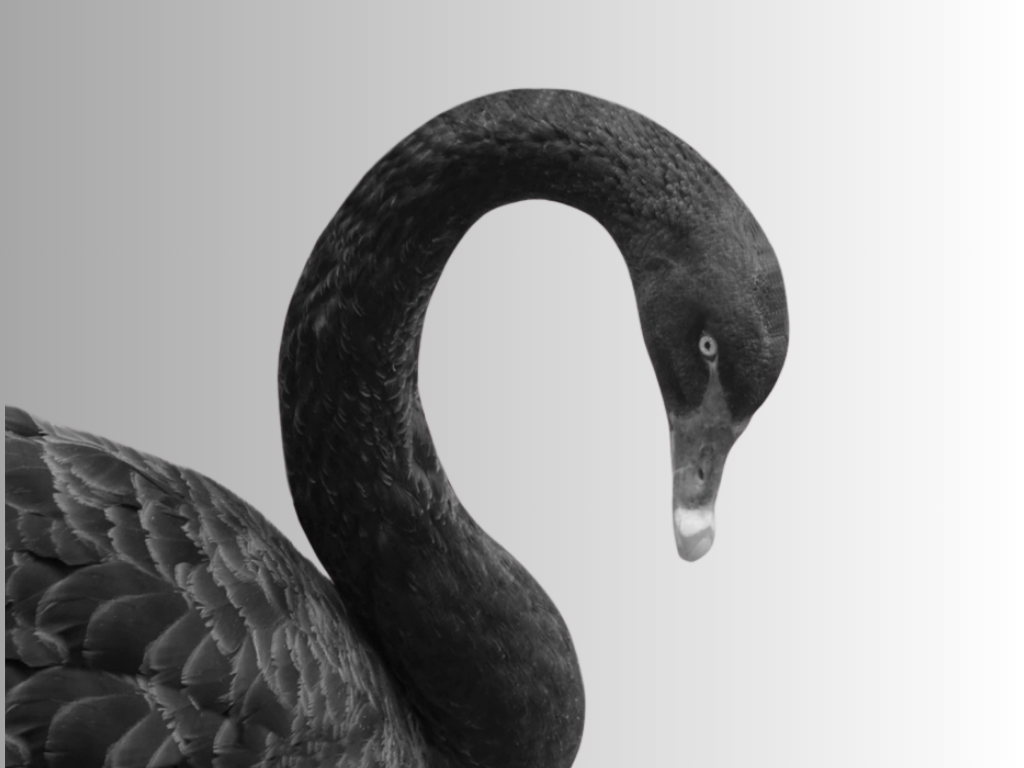Why Catastrophizing Feels Like a Superpower
There’s something irresistibly powerful about predicting disaster, isn’t there? While the optimists dream of puffy clouds and sunny days, the “realists” are preparing for the metaphorical asteroid on its way to destroy our lives. I am a catastrophizer; the older I get, the more vivid the catastrophes. I think of it as a survival skill, honed over the years and fine-tuned for maximum “I told you so” potential. And sometimes, yeah, it feels like a flex—a way to show I’m not stupid enough to assume tomorrow will look like today.
A Black Swan in Every Pond
Catastrophizing isn’t about deeming that every worst-case scenario will happen. It’s more a recursive evaluation of new information and a realistic extrapolation of the cause and effect. A catastrophizer overweights negative indicators, recognizing that sometimes, wildly unexpected things go wrong and with devastating consequences. Black Swan events—like the Titanic’s sinking or the Challenger disaster—loom large because they’re spectacularly unlikely and equally catastrophic. We’re wired to remember disaster more vividly than sunshine. And we’re quicker to notice the signs of doom than anything rosy. Why prepare for success when you can brace for impact?
Debbie Downer, Reporting for Duty
Let’s be real: catastrophizing sometimes starts as a rhetorical flourish, a way to claim authority and control. Maybe it’s our version of “prove me wrong”—a gauntlet thrown, daring someone to tell us everything will be just fine. Are the non-catastrophizers among us being lazy with their “that is never gonna happen” approach?” The vanguard of catastrophizers is not just looking for answers; we’re often searching for validation that we’re not the crazy ones. And we’re certainly not asking for a pep talk.
Women: The (Un)Official Catastrophe Champions
Is catastrophizing a gendered sport? Yup. Women, especially as we get older, carry this title with pride. Is it empathy or our acute awareness of risks, both big and small? Either way, let’s admit it—we’re pros. Men, on the other hand, tend to steer clear of the gloom. Is it their toxic masculinity and excessive confidence? Or are they too “practical” (or too stubborn) to worry about what could go wrong? They are kidding themselves if they think that they are in control of all the outcomes. Yet, here we are, mentally preparing for every version of the apocalypse, convinced that we’re doing everyone a favor by being the “sensible” ones.
Knowledge vs. Speculation
Not all catastrophizing is created equal. We have the seasoned catastrophizers who come armed with data, historical context, and a dose of earned skepticism. Then there are the wild speculators who spin doomsday tales with little to no back up. Think of it this way: if Henry Kissinger says a political situation looks dicey, I’m all ears. But if it’s my neighbor’s warning of a zombie invasion, I’m nodding along politely while mentally moving on. The difference? One’s rooted in “fact-based concern,” while the other is more storytelling than strategy.
For the catastrophizer, there is often a mix of biases at work. Take confirmation bias: Every new data point serves as proof that things are heading south, reinforcing the “it’s all going to hell” mindset. Then there’s the availability heuristic—because if we see a storm report on the evening news, it’s easy to assume storms are suddenly on the rise everywhere. These biases keep us in a loop of worst-case scenarios, whether reality has any plans to cooperate.
The Sky is Falling—Is It Really?
The reality is that catastrophes like the Titanic or the Challenger didn’t come out of nowhere. A Black Swan event begins as a series of non-linear micro-happenings that culminate in the disaster. There are subtle signposts and signals—unnoticed by most but looming, nonetheless. The weak signals are actually important, but there is so much noise out there, anyone would have trouble seeing that the catastrophe is on its way. Unlike happy moments, which tend to get underplayed and glossed over since they are most abundant, catastrophes stand out because they reshape everything. When the stakes are high, we’re on high alert, spotting the faintest signs of trouble as if our lives depended on it. And if that’s not a survival mechanism, I don’t know what is.
Sometimes, a “what if” spirals out of control and becomes a downer for everyone within earshot. Climate events, political elections, wars – tuning into any news channel is enough to make anyone nauseous. We’ve all been there: lost in the rabbit hole of “what could go wrong” until everything feels like a hopeless disaster waiting to happen. It’s easy to feel like Cassandra, the Greek prophetess who could see every impending catastrophe yet was cursed and ultimately ignored. Are we channeling Cassandra, sounding real alarms that others don’t see yet or don’t want to hear? Or are we indulging in our own self-sabotaging loop? A little doom-and-gloom can be an exciting conversation starter, but when every conversation begins with “the sky is falling,” maybe it’s time to dial it down.
Do you tend to catastrophize based on facts, or is it more of a reflex when you feel out of control?
Are you more interested in being proven right about disasters or simply feeling prepared for the worst?

This is a really good article, thank you for writing it.